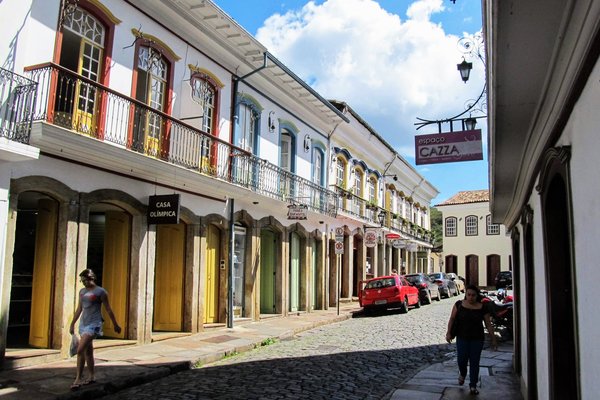Brazil
Ouro Preto
The Historic Town of Ouro Preto is a unique representation of Baroque architecture in a homogenous cityscape.
The city's wealth has its origins in the late 17th century, when gold was discovered here. The exploration of gold was a monopoly of the Portuguese crown. Small settlements of miners in search of El Dorado were joined to create the city and the settlers were divided into parishes and ethnic groups. Each group constructed its own church (religious orders were banned), bringing in baroque artisans that created sculptures and paintings that show a fusion of European and American elements.
Community Perspective: the example of a colonial-historic town in Brazil, in a hilly location with steep streets and some breathtaking views. The main attractions are its churches: the Basilica of Nossa Senhora do Pilar, the church of Nossa Senhora do Rosário, and the church of Sao Francisco de Assis (with Aleijadinho carvings) are among the highlights.
Site Info
Official Information
- Full Name
- Historic Town of Ouro Preto (ID: 124)
- Country
- Brazil
- Status
-
Inscribed 1980
Site history
History of Ouro Preto
- 1980: Inscribed
- Inscribed
- Type
- Cultural
- Criteria
- i
- iii
Links
- UNESCO
- whc.unesco.org
- Official
-
- ouropreto.org.br — Ouro Preto
All Links
UNESCO.org
- whc.unesco.org — whc.unesco.org/
Official Website
- ouropreto.org.br — Ouro Preto
News Article
- Jan. 15, 2022 dailymail.co.uk — Huge landslide downs power lines and destroys historic 122 year-old Brazilian mansion in Ouro Preto
Community Information
- Community Category
- Urban landscape: Colonial
Travel Information
Belo Horizonte Hotspot
Recent Connections
-
Universities
Mining School (1876, in historical cent… -
Mines which can be visited underground
Gold. Mina do Chico Rey - accessible on… -
Belo Horizonte Hotspot
100km / 1h50 by bus
Connections of Ouro Preto
- Trivia
-
-
Built or owned by Portuguese
built on pioneering mining wealth under Portuguese colonial rule (AB ev) -
On beer cans and bottles
Ouro PretanaSee untappd.com
-
- Architecture
- Damaged
-
-
Damaged by Landslide
The Solar Baeta Neves, a historic 19th century mansion, was destroyed by a landslide in January 2022.
-
- World Heritage Process
-
-
Perfect Inscriptions
1980 -
First inscriptions
Brazil 1980
-
- Human Activity
-
-
Slavery
The main tourist mine is named after an African slave. -
Gold production
-
- Constructions
-
-
Notable Bridges
18th century Marilia and Ponte do Contos -
Monumental Fountains
Fountain of Padre Faria (1761), Aleijadinho's earliest work in soapstone -
Theatres and Opera Houses
The first in Brazil, Teatro MunicipalSee es.wikipedia.org
-
Sites of Parliament
Parliament House
-
- WHS on Other Lists
-
-
Routes of Enslaved Peoples
Museum of InconfidênciaSee pt.wikipedia.org
-
- Timeline
-
-
Built in the 18th century
Founded in the last years of the 17th century als Villa Rica, its wealth and landmark buildings date from the 18th century
-
- WHS Hotspots
-
-
Belo Horizonte Hotspot
100km / 1h50 by bus
-
- Science and Technology
-
-
Mines which can be visited underground
Gold. Mina do Chico Rey - accessible on foot, walk in/out. -
Universities
Mining School (1876, in historical center) of the Universidade Federal de Ouro Preto
-
News
- dailymail.co.uk 01/15/2022
- Huge landslide downs power lines a…
Recent Visitors
Visitors of Ouro Preto
- Adrian Turtschi
- Alberto Rodriguez Gutierrez
- Alejandro Lau
- Alexander Barabanov
- Alexander Lehmann
- Alex Marcean
- Allegrazwindow
- Alvaro1404
- Ammon Watkins
- Aspasia
- Atila Ege
- Bill Maurmann
- Carlo Sarion
- Carlos Sotelo
- CeeMon
- Christoph
- Christravelblog
- Cirene Moraes
- Csaba Nováczky
- Deffra
- Doubanjiang
- Els Slots
- Erik Jelinek
- Eva Kisgyorgy
- Fan Yibo
- Gernot
- Iain Jackson
- Jarek Pokrzywnicki
- Javier
- João Aender
- Joel on the Road
- Jon Opol
- Ken DJ
- Kevin247
- Kurt Lauer
- Liamps91
- Little Lauren Travels
- Loic Pedras
- Luis Filipe Gaspar
- Lukasz Palczewski
- Maciej Gil
- Michael Ayers
- Michael Novins
- Mikko
- MMM
- Niall Sclater
- Nihal Ege
- Palimpsesto
- Patrik
- Paul Schofield
- Pchxiao
- Rafabram
- Ralf Regele
- Reza
- Roger Ourset
- Roman Bruehwiler
- Sclowitz
- Shandos Cleaver
- sibariam
- Solivagant
- Ssong.x
- Stanislaw Warwas
- Thomas Buechler
- Thomas van der Walt
- Walter
- Wojciech Fedoruk
- Xiquinho Silva
- Zoë Sheng
Community Reviews
Show full reviews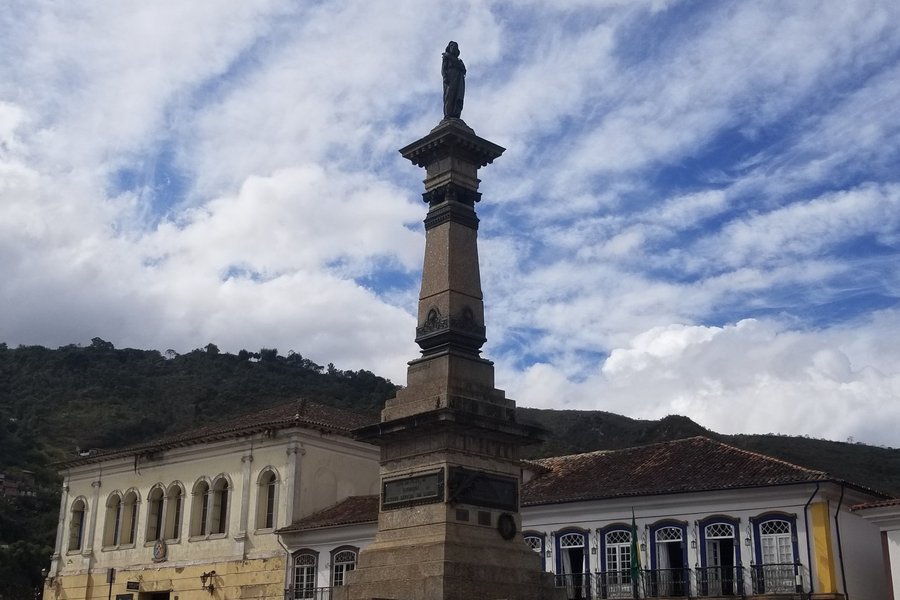
As others have said already said: Ouro Preto inhabitants must be pretty fit to walk around the inner town. Sure the town has its flatter part but you won't get anywhere on foot unless you are prepared to hike up and down. The cobble roads aren't even that great for long walks. The other downside for me was that I actually drove here. A bus would be better because you can just get off from Belo Horizonte and then do your sightseeing, return when ready. It took me a good 20 minutes to find a parking space that didn't seem illegal. While some just parked at the bus stop and resident plaques aren't always kept in line I was sure the spot (down the hill) was actually legal. So with that out of way I first had to hike up to start looking around. The central square (pictured) is clearly a good spot to start. Unfortunately there was some renovation going on at the churches and they looked covered up. No big deal because there is plenty of stuff to see and I feel the scenery around town is another highlight.
The other downside I had, as you can see from the picture, is that the weather wasn't playing nice. It was grey and dark so the scenery wasn't as wonderful as I was hoping for. It's still nice and the drive to and from the town is already a highlight. Thus the main thing I saw was the colonial …
Keep reading 0 comments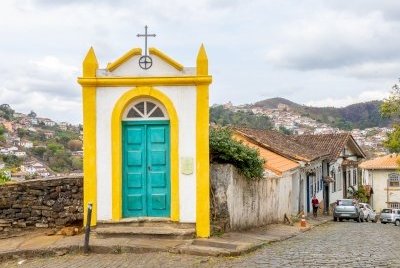
I think that Ouro Preto has got all the characteristics of an outstanding cultural World Heritage site: it contains architecture and artwork of high aesthetic value; its buildings, roads, and other colonial infrastructure are well preserved and conserved; and it is a setting of important historical events in the country, particularly the Brazilian independence movement. Schoolchildren are taught about its historical significance and many visit as part of their school trips. Additionally, this former center of gold mining enjoys a status of being a popular tourist destination among locals, as Rafabram attests.
I spent two and a half days in Ouro Preto in September 2022. As of Feb 2023, Passaro Verde bus company runs 12 departures per day from Belo Horizonte (2-3 hours). As in previous reviews, visitors must be wary of the town’s terrain and the steep roads could be physically challenging for some. The town is divided into parishes, and one may organize their itinerary by using the churches as the focal point and strolling around the surrounding streets from there. Areas that I have visited are as follows:
- Praça Tiradentes – the main public square of the town that is surrounded by beautiful buildings. Notable of these buildings is the Museu da Inconfidência, which provides visitors a background to the history of the town. On the other side of the plaza is Museu de Ciência e Técnica da Escola de Minas, which mostly houses natural history, mineralogy, mining collections.
- Antônio Dias Parish – …
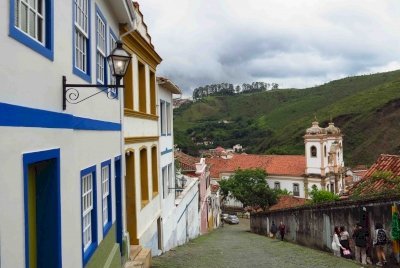
I think Ouro Preto might be sort of an unknown destination for foreign travellers, but among brazilians it's a popular city. It's the model of a historic town in Brazil, declared very early as a national monument, in the 1930's, even before the creation of IPHAN, the institute responsible for the preservation of brazilian cultural heritage. It was one of the first preserved heritages in the country, so Ouro Preto has a long background of actions of preservation and restoration, and it isn't a surprise that it was the first WHS of Brazil. The city is also very related to two figures every brazilian study in history books of elementary school: Tiradentes, the national hero of the failed independence mutiny (the day of his death is a national holiday), and Aleijadinho, the baroque sculptor whose works are an important reason of inscription of the nearby WHS Sanctuary of Bom Jesus do Congonhas.
I spent three very rainy days in December 2019 there. The streets are steep, some very steep, so not the best weather to walk around the city and its stone paved ways. Because of its hilly location the city doesn't have an orthogonal layout, usual in colonial towns, or even close to it. The map of the city looks like a mess, what makes it fun to explore. The main sights are well signposted, so I didn't get lost. Some buildings have small signs on the facades explaining a bit of the attraction, what is rare in …
Keep reading 0 comments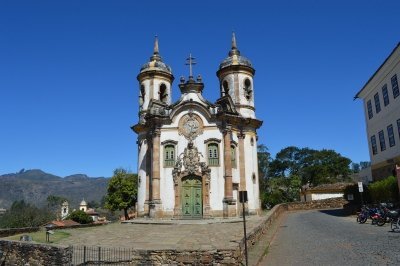
In August 2018, I made a day trip by bus from Belo Horizonte to Ouro Preto, a colonial-era town constructed in Brazil’s gold mining area in the 18th century while under Portuguese rule. I spent the day wandering the cobblestoned center, dotted with Baroque churches built with wealth from Brazil’s gold rush. After the gold boom, Ouro Preto was economically isolated for most of the 19th and 20th centuries, which helped preserve its historic buildings and urban pattern. I visited on a Monday, bad news since I couldn't visit the interior of the churches or the museums, but good news since I didn't have to deal with mobs interrupting my photos.
Keep reading 0 comments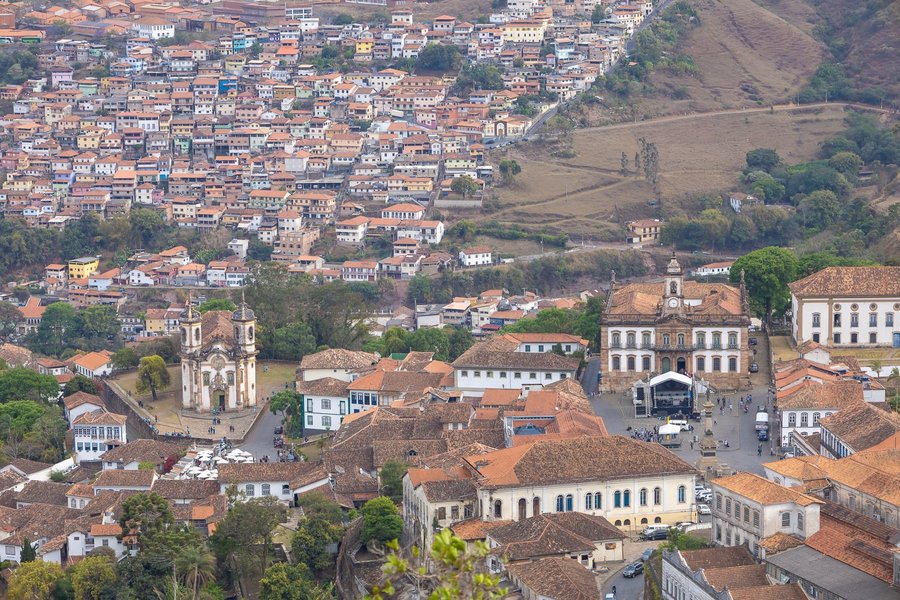
Ouro Preto is a fantastic city, where is possible to see a kind of live that is desapearing in Brazil, a small comunity united by religion, relatives and habits. And more, there are the Art. It's one of the best examples of colonial/ baroque art in Brazil
Keep reading 0 comments
There is no doubts that Ouro Preto deserves a visit.
The beauty of some churches, specially Nossa Senhora do Pilar and Sao Francisco de Assis, with their mind-boggling golden interiors, and the bucolic early morning views over the town contrasting with the students parties at night offer the visitor a complete pack of culture, South American colonial history and art.
However, Ouro Preto has been preserving its heritage with careleness. First, there is no preservation counciousness, as a historic house in the town's main square recently burned down and a beautiful fountain was destroyed by a truck. Also, the hills surrounding Ouro Preto were dominated by modern and ugly statements, and the once beautiful wide landscapes are now limited to the town itself using the Itacolomi rocks as background.
There are no doubts that Ouro Preto deserves a visit, as it is not so far from big centers like Sao Paulo and Rio de Janeiro, and the region is packed with other sensational destinations, including other World Heritage sites like Diamantina and Congonhas, but bad use is consuming Ouro Preto's charm and beauty.
Keep reading 0 comments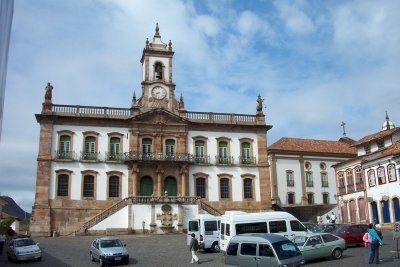
Locals here must be in good physical condition: the town´s cobblestoned streets go up and down and up again. These locals can enjoy themselves though, living in such a great city, wonderfully preserved and indeed very homogeneous in its looks.
I stayed here for three days, which is a good period to get to know the place. I visited museums and churches, but wandering around is also great fun. It doesn't matter where you're going, at about every street corner there's a great view.
Some great spots: the Igreja de Sao Francisco de Assis (with Aleidinhija carvings), the Museum de Oratorio, and the view down from the road to Mariana. You can also explore one of the huge old mines (Mina de Pasagem) just outside the town. Which I did, of course, becoming some kind of mining expert after visiting other mining WHS in Blaenavon (Wales) and Spiennes (Belgium).
Keep reading 0 comments
